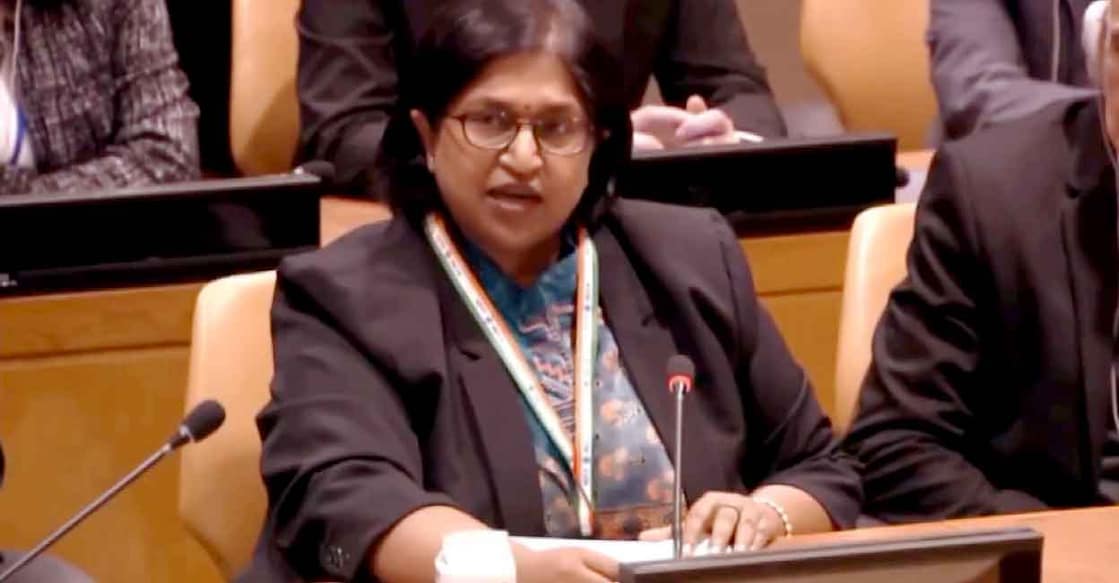‘Dirty work for US': India slams Pakistan at UN over defence minister’s terror confession

Mail This Article
United Nations: India has slammed Pakistan at the United Nations, saying the recent admission by its defence minister has laid bare the country’s long-standing role in nurturing terrorism and destabilising the region.
At a UN event marking the launch of the Victims of Terrorism Association Network (VoTAN), India's Deputy Permanent Representative to the UN, Ambassador Yojna Patel, delivered a sharp Right of Reply after Pakistan raised the Pahalgam terror attack in Jammu and Kashmir.
“It is unfortunate that one particular delegation has chosen to misuse this forum to spread propaganda and level baseless accusations against India,” Patel said.
She referred to a recent interview by Pakistan’s Defence Minister Khawaja Asif, who openly admitted on Sky News that Pakistan had been involved in supporting, training and funding terrorist organisations — part of what he described as “doing the dirty work” for the United States and the West, including Britain, for nearly three decades.
“The whole world has heard this confession,” Patel said. “It surprises no one but serves as yet another confirmation that Pakistan is a rogue state fuelling global terrorism. The world can no longer afford to turn a blind eye. I have nothing further to add.”
UN expresses concern
Meanwhile, UN chief Antonio Guterres expressed deep concern over the situation between India and Pakistan, and said the organisation stands ready to support any initiatives, acceptable to both parties, for "de-escalation" and "resumption of dialogue". He strongly urged both Governments to exercise maximum restraint and avoid any escalation, a statement by the office of his spokesperson said Monday.
Tensions have escalated between India and Pakistan after terrorists opened fire near Kashmir's Pahalgam town on April 22, killing 26 people, mostly tourists, in what is the deadliest attack in the Valley since the Pulwama strike in 2019.
India downgraded diplomatic ties with Pakistan and announced a raft of measures, including expulsion of Pakistani military attaches, suspension of the Indus Water Treaty of 1960 and immediate shutting down of the Attari land-transit post in view of the cross-border links to the Pahalgam terror attack.
The statement on Monday further noted that the United Nations Military Observer Group in India and Pakistan (UNMOGIP) has no presence in the area where the attack happened and continues to implement its mandate of observing developments pertaining to and supervising the strict observance of the 1971 ceasefire along the Line of Control.
UNMOGIP was established in January 1949. Following the India-Pakistan war in 1971 and a subsequent ceasefire agreement of December 17 of that year, the tasks of UNMOGIP have been to observe, to the extent possible, developments pertaining to the strict observance of the ceasefire of December 17, 1971, and to report thereon to the Secretary-General. India has maintained that UNMOGIP has outlived its utility and is irrelevant after the Simla Agreement and the consequent establishment of the Line of Control (LoC).
Last week, the UN Security Council condemned in the strongest terms the terrorist attack in Jammu and Kashmir, stressing that those responsible for these killings should be held accountable and organisers and sponsors of this "reprehensible act of terrorism" should be brought to justice.

